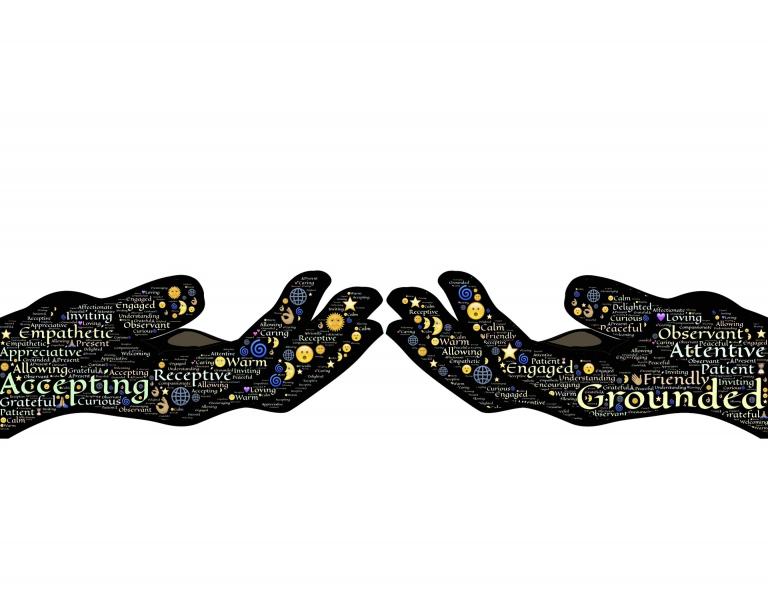Shedding Unwanted Vestiges of the Religions We Grew Up With, Part 2: Sin
In Part 1, I introduced the subject that many of us have values from our former religions that are not in our new religions. I explored how we may want to leave those behind in favor of the values of the new religion we’ve found, but how it can sometimes be hard to recognize all of the things we brought with us from the old that we may wish to jettison. I described my own experience having been raised Zen Buddhist and what ideas I was raised with, and also discussed what I’ve seen of people who were raised in an Abrahamic religion. I dealt with the issues of pride and humility, suggesting that we Pagans tend to encourage healthy self-esteem in combination with ethical behavior over selflessness, and described mysterious ways in which I’ve glimpsed true pride and true humility as the same. Ultimately, I suggested how we might elevate ourselves along with our community, society, and, indeed, even in a small way, humanity. That is through seeing all human beings, including ourselves, as people to be proud of. I concluded by suggesting a spiritual practice to align ourselves with that goal.
In this next part, I’ll talk about the issue of Sin. Sin is not so present in Buddhism, but it’s ever-present in most forms of Christianity. I suspect it’s also common in Islam and Judaism, and possibly some other religions as well. Sin, in a monotheistic context, means disobeying God. The idea is that God has given us a set of rules. In Christianity, this might be the Ten Commandments and/or they might also be the teachings of Jesus. These rules define a morality for that religion. To follow them means to be what that religion would consider to be “good”. To disobey them, even to stray from them accidentally, would be to “sin”, and that’s considered “evil”. Although I realize that I was not raised in an Abrahamic religion, I’ve observed a lot of people who have moved from a religion with the concept of sin into Paganism, where we tend to talk about ethics in a very different way. I see a lot of Pagans holding onto their old sin baggage.

There are several problems with sin in Paganism. First, we don’t typically have scripture. Although we have sacred texts full of wisdom, lore, tradition, and plain old good advice, we don’t have scripture in the sense of commandments from a Deity on high.
Secondly, rather than having faith in scripture, we tend to seek experiences that allow us to commune directly with our Deities. This may be through divination, dreams, or some other method. Rather than insisting that what we receive is for everybody, we tend to take any apparent communication as just for us, or for our little group, holding out the idea that the same Deity may have different advice for different people, because we all may have different needs, different lessons to learn, and different paths to walk. The same Deity can tell the same person one thing one month and something else another and someone else, something else entirely, all custom-tailored to each individual’s needs at any given time. These revelations provide wisdom and guidance, but not rules for all.
Thirdly, since many of us have multiple Deities we try to listen to, our lives would get very complicated very quickly if we took every revelation from every Deity as commandments. What would we do when they conflict? Multiple types of wisdom can all be valid, even if they seem to contradict. So, what we have instead of commandments is a pluralistic religiosity that provides multiple fonts of ethical guidance.
We definitely have ethics. Even though we may not see one set of rules coming from one God on High, every Pagan religion I’m aware of has ethics and values that inform its adherents as to how to act. Often times, one of the most central of these is that each of us needs to figure out our ethics for ourselves and follow them. In every case, people are held accountable and expected to take responsibility for their actions. I know of no form of Paganism in which bad behavior is permissible, it’s just that our understanding of bad behavior is different from the concept of sin.
Finally, many of us Pagans, including me, have major problems with the idea of an arbitrary set of rules to begin with. The philosopher Immanuel Kant thought that it’s immoral to do something only out of fear of punishment or hope of reward. In The Foundations of the Metaphysics of Morals, he encourages us to question even God. His point is that we should do what’s right because it’s right and for no other reason. To do so for any other reason would be morally bankrupt, since it would be selfish. Yet, religions that have a concept of sin often have a parallel concept that obedience will be rewarded and sin will be punished. Many of us Pagans agree with Kant. We should do the right thing because it’s right. If that’s true, the Deities need not motivate us with a carrot or a stick. All They need do is advise us with their wisdom. The rest is on us. Rather than being motivated by fear of damnation or hope of salvation, we should be motivated by having enough love and compassion for our fellow human beings that we honestly want to do what’s right.

Kant thought that every human being has autonomy and that this is part-and-parcel of ethics. Each one of us must determine for ourselves what’s good and bad. When we do, he suggested, we should strive our very best to follow our ethics and be honest with ourselves about what that really is. We should check our ethics by asking whether or not we apply them the same way to everybody (e.g., if we think it’s wrong for others to punch us, it’s wrong for us to punch others).
So, how do we know what’s good? The short answer is that we don’t, not for sure anyway, and neither does anyone else. Abrahamics have often opined that there are false gods, who are not the one, right, true, and only God, but how do these monotheists know that the God of Abraham isn’t one of these false gods? They often believe that some devil can perform miracles too, or at least trick humans into thinking he can. Many conservative Christians, for example, would say that our most loving healing Gods are false gods or fallen angels who try to deceive us. How do they know that their God isn’t such a being? They don’t. That’s not in any way to disparage them. They have faith, as do we. Their religion teaches peace and love, and that’s beautiful. I’m not actually suggesting that their God is a devil (I cannot imagine that Jesus is such, not with all his wonderful teachings), but merely pointing out that none of us knows the truth. Many of us Pagans opt for an autonomous, human-defined ethical system because we tend not to see morality as one set of Divinity-given rules for all humankind and would rather trust our own thoughts and intuitions, with Divine inspiration, than risk imposing false morality on the rest of humanity.
Our Deities, our practices, and our resolute walking of our chosen path all help us follow our ethics. However, this is very different from avoiding sin. So I invite you to throw off the idea of sin and replace it with a fervent adherence to doing what you honestly think is right. Throw out your fear of Divine wrath or your hope of Divine reward and, instead, follow your ethics simply because it’s the right thing to do. Do this under the advisement of your Deities, spirit guides, ancestors, etc. To put in better words than mine, “keep pure your highest ideal; strive ever toward it; let naught stop you or turn you aside” (“The Charge of the Goddess”, Doreen Valiente).

One last point. We Pagans look at all forms of consensual, adult sexuality as sacred and, basically, good. We look at pleasure as essentially sacred and good (while acknowledging that imbalanced pleasure can cause problems). Religions that have a concept of sin, though, often have the concept that sexuality and pleasure are fundamentally bad. Thus, the word sin is often used to describe these things, even if we use that term in a way that supports them (such as “let’s sin!”). If, like many of us, you truly have no concept of sin, I’d encourage you to avoid using this term to describe your own deeds. However much we might be joking, we Pagans know that words have power. Sex and pleasure are not sins to our way of thinking. So, I’d encourage you to rephrase being “sinful” in more positive terms. Otherwise, we might be telling some deep part of ourselves that, say, it’s okay to have unprotected sex, or even to violate others. If we conflate pleasurable experiences with unethical behavior, there’s a danger that we’d be essentially casting a spell on ourselves to forego our ethics, and that would be un-Pagan of us.
As with the last post, I have a spiritual exercise you may want to try. Once again, since we all have different ways of creating sacred space, I’ll leave it to you to do that in your own way. As I also said last time, I’ve found that we can never rid ourselves of something within us. We can only change it. As the Thelemites say, “there is no part of me that is not also a part of the Gods”. So, I’d encourage you to look deep inside and see that part of you that still clings to the idea that there’s such a thing as sin. The goal of this exercise is to change this inner misguided spirit.
1. Visualize it. What does that look like to you? You might even visualize it as a creature of some sort: an unruly spirit within you waiting for guidance. You might even include the sound, smell, touch, and, yes, even taste of this being. Remember that it’s a part of you.

2. Create sacred space however you do that and call on whatever Deities or spiritual beings you work with, particularly any patrons you might have, and particularly any ones that are good at this sort of work. Deities of transformation come to mind, as do healers, since this is really a type of healing.
3. See (and maybe even feel, smell, taste, and hear) this false, sin-defined morality within you that you want to get rid of. Know it inside you as a being, perhaps a sort of misguided spirit.
4. Talk to this being. It’s part of you, so you can talk to it. Find out why it is the way it is. Rather than being adversarial to it, I strongly suggest coming to it with compassion. You may find that, misguided as it is, it’s doing all these things for reasons that it thinks are good, or what we want (and maybe, at some level, we have been encouraging it, even if we now need to stop doing so).
5. Thank it for all it’s done, but explain to it why its behavior and outlook are problems. Explain that you’re communicating with it in a non-judgmental way, but, also explain that it can serve you better by relinquishing this notion of “sin” and, instead, helping you follow your ethics.
6. Will that, for the greater good of both you and humanity, it transform itself from a being that believes in “sin” to a being that promotes true ethics. Visualize this (and maybe smell, hear, touch, and perhaps even taste it) until you see a full picture in your mind of a new being: one who represents your Pagan ethics. See it transform into this. If you have any trouble, ask your Deities or spirit helpers for help, but remember that you’re just changing yourself, so you have the right to decide how you’re going to be. Rather than seeing it as a battle, transform it with love. It may take a great act of love and will to transform yourself from a person who thinks there’s sin and is afraid to disobey arbitrary rules to a person of strong ethical principle. So, turn on the love and try to get this being, which is part of you, to be on your side.
7. When you see (feel, sense, etc.) that this part of you has been transformed, thank it, and thank whatever spiritual beings and Deities you’ve called, and then open sacred space.
Afterwards, I’d encourage you to let this be the magical act that it is. Avoid talking to others about it or even thinking much about it. More than mere psychology, this is magic. It will transform you, so let it flow.

















